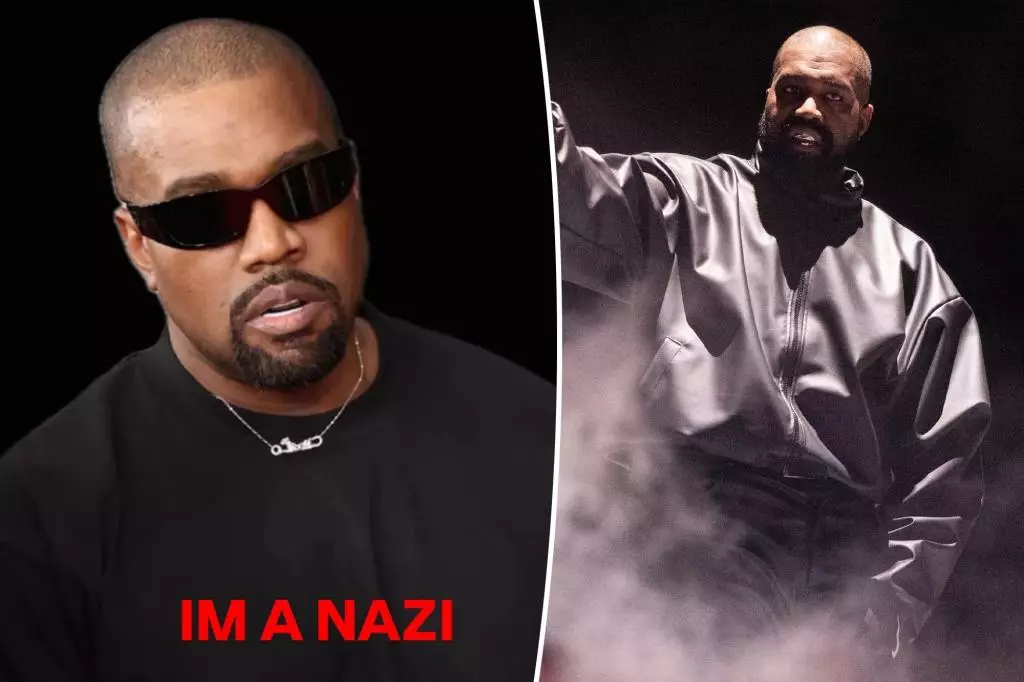Kanye West, the controversial yet undeniably talented figure in the music industry, is once again at the center of a fierce backlash. Recently, he announced an open casting call for what he terms a “hooligan choir” to participate in a project linked to his upcoming album “Vultures.” However, the parameters he set for this choir are not only perplexing but also indicative of the deeply troubling trajectory his public persona has taken.
West’s stark requirements, which specify a certain skin complexion and explicitly state that only “all males” are eligible, raise profound questions about the artist’s understanding of inclusivity and diversity. His insistence on having “shaved heads” and the outright dismissal of “fat people” cannot simply be brushed aside as eccentricity; they reflect a disturbing pattern of ideals that seem rooted in exclusion and prejudice. The notion of casting individuals “comfortable wearing swastikas” is particularly jarring, transforming what might have been an artistic endeavor into a chaotic manifestation of dark ideologies.
A Disturbing Trend
The rapper’s history of inflammatory remarks, particularly his antisemitic rhetoric that first surfaced in late 2022, has resulted in significant fallout—brand partnerships severed, public outrage amplified, and his social media presence scrutinized. While West did issue an apology to the Jewish community in an attempt to promote reconciliation, it was overshadowed by his subsequent declarations of admiration for Adolf Hitler and the indifference he demonstrated towards the pain his comments have caused. With statements like “I’m never apologizing for my Jewish comments,” it is evident that West is not merely advocating for free speech; he is actively choosing to push the boundaries of social acceptability into harmful territories.
In light of this, one cannot help but wonder if West is deliberately courting notoriety rather than genuine engagement with his audience. The aggressive nature of his commentary and his flame-fanning approach to polarizing subjects appear to suggest a calculated move to reclaim a spotlight that he has rendered intensely toxic.
The Role of Social Media
In our current digital landscape, social media serves as a double-edged sword. On one hand, it offers a platform for artistic experimentation and communication; on the other hand, it can amplify harmful rhetoric and misinformation. West’s repeated exploits on platforms like X (formerly Twitter) illustrate the power and peril of these channels. His casting call, which incited shock and outrage, has garnered an impressive level of engagement and media attention, inadvertently reinforcing the very ideologies he appears to espouse.
As users called out X’s owner, Elon Musk, for allowing such content, it magnified a delicate tension between the ideals of free speech and accountability on social media platforms. This situation underscores a critical need for a thorough reevaluation of how we navigate controversial figures in public discourse. In the case of Kanye West, the question lingers: Is he a misunderstood artist provocatively critiquing societal norms, or has he crossed into the realm of promoting harmful ideologies that must be confronted? Each new revelation further complicates that assessment, urging both the public and platforms alike to engage more responsibly in discussions around rhetoric, hate, and accountability.

Leave a Reply